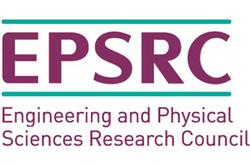Phil Ward is currently preparing a University response to the survey by Universities UK (UUK) on the European Union’s next Framework Programme, FP9.
As many of you know, the Framework Programme is a set of schemes (or ‘actions’) by which the EU gives out most of its research and innovation funding. In the past the UK has done very well out of it, being second only to Germany in terms of the amount of funding it gets. The budget for FP9 is currently being negotiated, and the EU is starting to give some thought to what should replace Horizon 2020, which is the current Framework Programme.
Although there is some uncertainty about the UK’s involvement after Brexit, the Government is due to issue a position paper on this tomorrow, and the rumours are currently positive, as reported in Research Professional.
Thus, it’s important that the University’s voice – and that of the sector more broadly – is heard. If you’ve had European funding, have applied for it without success, or have, perhaps, been put off by the complexity, let me know your thoughts.
The specific questions are below, but feel free to give a broader response. Please could you let me have your thoughts by Mon 18 Sept, to allow me time to prepare an institutional response?
I appreciate any time you can give to this. If you want to talk in person, I’m happy to come and chat.
_______________________
Specific Questions
- What are the most important advantages of European funding for you?
These might include researcher mobility, international partnerships, prestige, or access to pan-European research infrastructures, for example.
- What are the most significant disadvantages?
For example admin, auditing, complexity of application and choice of funding, the time it takes to hear back, or the lack of opportunity for humanities or social sciences.
- How do these advantages/disadvantages compare to other international funding, such as bilateral agreements?
- Is there anything that EU funding can achieve that domestic funding cannot?
- Can you give specific examples of significant impact arising from EU funding?
These might include major breakthroughs, the establishment of labs or groups, significant mobility opportunities, or new collaborations.
- What would be the most important elements in FP9 for you?
For example: mobility, long term stable funding for excellent research, simplification, light touch admin, support for multidisciplinary research, collaboration, the chance to tackle global challenges beyond the national, access to research infrastructures, a balance of top-down and bottom-up support.
- What are the three most pressing challenges or issues in FP9?
- How can the EU ensure the development of capacity in lower-performing member states whilst retaining support for excellent research?
- How can the EU support and develop social and economic impact?
- Is the balance between fundamental and applied research right? If not, what should change?
- Should the public be more involved in the development of FP9? If so, how?
- How can FP9:
- Better support non-science research?
- Address gender disparities?
- Facilitate more collaboration outside the EU?
- Better support the Open Science agenda?

